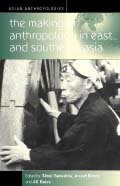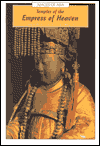 |
Joseph Bosco 林舟
Contents
Associate
Professor
Head, Graduate Division
Director, MA Programme
Department of Anthropology
The Chinese University of Hong Kong
Shatin, N.T.
Hong Kong
Email:
josephbosco "at" cuhk [dot] edu [dot] hk
Work phone: (852) 3943 7675
blog:
http://anthrofragments.blogspot.com/
|
Biographical Information
Education:
-
Ph.D. with distinction, January 1989,
Columbia University, Department of Anthropology.
-
M.Phil. 1984, Columbia University,
Department of Anthropology.
-
M.A. 1982, Columbia University,
Department of Anthropology. Member of the
Joint Program in Applied Anthropology with Teachers College.
-
B.S. with honors, 1980, University of
Notre Dame. Major: Biology, and Concentration in Anthropology.
Which Joseph Bosco is this?
To my utter shock,
after I had been studying anthropology and Chinese and moved to Hong
Kong to teach, two other Joseph Boscos
emerged who also, as improbable as it seems, were interested in Taiwan
and China. (There are still other Joe Boscos,
but
let's not go there…) One is a lawyer who worked for former
Massachusetts Governor John Volpe, then went to Washington as Volpe’s
special assistant when he was named Secretary of Transportation by
President Nixon. That Joe
Bosco has also been a professor at
Georgetown and is a national security consultant. His full name
is Joseph A.
Bosco (I don't have a middle name or
initial). He wrote a few opinion pieces that led some friends to
wonder what had happened to "me"; here is a
Washington
Post
Op-Ed from 2001, and a
Taipei
Times
column that argued against China's legal claims to be able to
use force to unite Taiwan with the mainland. He argued for the
containment of China, and for pressing China on issues of US interest,
thus taking a politically conservative or hawkish point of view.
Here
is
a more recent opinion piece in the LA Times that argues the US
should end the policy of 'strategic ambiguity' and make clear that it
would protect Taiwan from attack, and in return Taiwan should agree to
"forgo formal independence for now." He also makes a point that I tend
to agree with, which is that "Two democratic peoples
could peacefully manage the question of unification, independence or
association." (Still, much work would need to be done to convince
Beijing that this policy is not designed to stealthily promote Taiwan
independence.)
More recent (2010) articles include one in the Washington Times
on the need to contain
China’s
growing
threat and a
call
in
the Christian Science Monitor for Obama to call a summit of
Nobel Peace Prize winners to protest China’s jailing of Liu Xiabo.
The other Joseph Bosco (who like the Georgetown lawyer also had
the middle initial “A”, but did not use it) was a journalist and the
author of a
book
on
the OJ Simpson trial. I only had occasion to meet him once
in November 2006 before he died at a relatively young 61 years of age
in July 2010 (see his
LA
Times
obituary here). He had
his
fans, but seemed to have some enemies (see this
blog
and this LA Times
Boyarsky column). He was very nice in
person when we met, but seemed sometimes pugnacious in his blogs, other
times regretful about unspecified choices in his life. In 2002,
he took a job teaching English in Fujian, and the next year moved to
Beijing where he was Visiting Professor of Journalism at the Beijing
Foreign Studies University. During his time in Fujian, the
journalist Joseph Bosco developed strong
opinions on the Taiwan issue, though unfortunately (for posterity, but
fortunately in other ways), his blog entries
are no longer on the web. The journalist Joseph
Bosco viewed himself as a liberal, but
since he had never been in Taiwan, he viewed the issue exclusively
through PRC eyes. He dismissed and disparaged Taiwanese claims
for independence, noting that the PRC will never accept an independent
Taiwan. He wrote so glowingly of the PRC that he attracted the
attention of the right wing press (see this
Newsmax article for a right-wing attack on
JB). The glowing piece on China was actually an attack on the
other Joseph
Bosco, so I felt caught in battle of Joseph
Boscos!
Needless to say, I am
not them. The Library of Congress knows me as
Bosco, Joseph, 1957- since I don't have a
middle name. I considered taking a middle name or initial, but a
librarian told me that would be even more confusing. So there we
are.
Bosco is not a common surname in Italy;
this site
will show you, however, that the name is not rare and is spread
throughout Italy (for the record, my Bosco
ancestors are from
Vasto, in the
Abruzzi, and 3
generations before that arrived in Vasto
from the Marche according to family tradition, but from Puglia further
south according to government records). Joseph, or Giuseppe, is
probably the most common male given name in Italy; San Giuseppe, on 19
March, was once a national holiday. So that is why there are 3 of
us. But it is still quite some coincidence that there are 3
Joseph Boscos (Boschi?)
who
have written about Taiwan and China.
I am also known by my
Chinese name LIN Zhou (林舟).
Lin
is a common surname and means forest (which is what
Bosco means in Italian). Zhou sounds like "Joe." I
hope any other Joseph Boscos take
different Chinese names (at least a different character, like
周or
州or even
粥
J )
to avoid confusion!
Back to top
Personal Interests
Back to top
Courses I teach in 2015-16
Fall 2015
On Research Leave, Conducting fieldwork in Taiwan
Spring 2015
ANTH 6020
Seminars
in Research Methods
ANTH 5251
Seminars in the Anthropology of China II (coordinator)
Back
to
top
Books
edited and written:
Articles in journals and chapters in books:
2015
"Urban Processions: Colonial Decline and Revival as Heritage in Postcolonial Hong Kong."
In Peter van der Veer, ed., Handbook of Religion and the Asian City: Aspiration and Urbanization in the Twenty-first Century, pp. 110-130. Berkeley, CA: University of California Press.
2015
"Chinese Popular Religion and Hong Kong Identity".
Asian Anthropology 14(1): 8-20.
2014
"The
Problem of Greed in Anthropology:
Sumptuary
Laws and New Consumerism in China."
Economic Anthropology 1:
167-185.
2013 "The
Hong Kong Ocean Park Kidnapping Rumor." Ethnology 50(2):135-151.
2012
"The Formula as a
Managerial Tool: Audit Culture in Hong Kong".
Journal of Workplace Rights 16(3-4) 383-403.
2010 "The Problem with Relativism in the
Comparative Study of Religion." In Aspects of Transformation
through Cultural Interaction, (bilingual publication in English
and Japanese), edited by Shinohara Hirokata, Inoue Mituyuki, Huang Yun,
Hino Yoshihiro, and Sun Qing, pp. 3-49. Osaka, Japan: Institute for
Cultural Interaction Studies, Kansai University.
2009 “Underground Lotteries in China: The Occult Economy and Capitalist Culture” (with Lucia Huwy-Min Liu and
Matthew West). In Research in
Economic Anthropology: Economic
Development, Integration, and Morality in Asia and the Americas,
No.
29, Donald C. Wood, ed. Emerald Publishing. (Winner of Outstanding
Author
Contribution
Award
Winner at the Emerals
Literati
Network
Awards
for
Excellence 2010).
2009
“SEAA
人类学词汇维基辞典的简介”. 西北民族研究
第63期:102-105.
2007
“Young
People's Ghost Stories in
Hong Kong”. In The Journal of
Popular Culture 40(5):785-807.
2004
“Asian
Anthropologies: Foreign, Native and Indigenous”
(with Shinji Yamashita and J.S. Eades). In
Making Anthropology in East and Southeast Asia Shinji Yamashita,
Joseph Bosco, and Jerry Eades, eds. Oxford: Berghan Books, p. 1-34.
2004
“Local
Theories and Sinicization in the Anthropology of
Taiwan.” In
Making Anthropology in East and Southeast Asia Shinji Yamashita,
Joseph Bosco, and Jerry Eades, eds. Oxford: Berghan Books, pp. 208-252.
2004
"Anthropological
Fieldwork in the 1980s: The Final Years of
Martial Law." Issues & Studies
40(3-4): 428-439.
2004
"Hong
Kong." In Encyclopedia
of
Diasporas:
Immigrant
and
Refugee
Cultures
Around the World,
Melvin Ember, Carol R. Ember, and Ian Skoggard, eds.
NY: Kluwer Academic/Plenum Publishers, pp. 506-514.
2004
"Longer
Contemplation." In New Reflections on
Anthropological Studies of (greater) China, ed. Xin Liu. Berkeley:
Institute of East Asian Studies, University of California, pp. 71-77.
2003
“The
Supernatural in Hong Kong Young People's Ghost
Stories.”
Anthropological
Forum 13(2):141-149.
2003
“Tianhou
gong zhi chongjian yu huoli: Taiwan yu Xianggang
bijiao yanjiu (The rebuilding and vitality of Tianhou Temples: A Taiwan
and Hong Kong Comparison).” In Mazu
xinyang de fazhan yu bianqian (Mazu Belief and Modern Society). Lin
Meirong,
Chang
Hsun
and
Tsai
Hsiang-hui,
eds. Taipei:
Taiwan
Association for Religious Studies and Beigang Chaotian Gong.pp.
95-116.
2001
“The
McDonald’s Snoopy Craze in Hong Kong” in Gordon
Mathews and Lui Tai-lok, eds. Consuming Hong Kong, pp. 263-285.
Hong Kong: Hong Kong University Press.
2001
“Hong
Kong.” In Ember,
Melvin and Carol R. Ember, eds. Countries and
Their Cultures Volume 2, pp. 991-1000. New York: Macmillan
Reference USA.
2001 The Tianhou Temple Ritual
and Architecture (CD-ROM) (with Puay Peng Ho).
Published by the Depts. of Architecture and Anthropology,
Chinese University, and distributed by The Chinese University Press.
1999
“An Anthropological View of the Hong Kong McDonald’s Snoopy Craze.”
Hong Kong Anthropologist, No. 12: 23-30.
1998
“Anthropology among the natives: the indigenization of Chinese
anthropology.” In Sidney C.H. Cheung, ed. On
the
South
China
Track:
Perspectives
on
Anthropological
Research
and
Teaching.
Hong Kong: Hong Kong Institute of Asia-Pacific Studies, The
Chinese University of Hong Kong, pp. 23-44.
1997,
1998,
1999, 2000 Co-Editor (with Grant Evans) Hong
Kong Anthropologist (no. 10, 11, 12, 13).
1996
“Pagers
and Culture in Hong Kong.” The
Hong
Kong
Anthropologist No. 9, pp. 16-23.
1996
“Taiwan
jiating qiye de wenhua quanshi [On Cultural
Explanations for the Development of Family Factories in Taiwan].” (In Chinese) Zhongguo shehui kexue jikan
(Chinese Social Sciences Quarterly) vol. 14 (April).
1995 Editor, Taiwan Studies: A
Journal of Translation, issue on “Land Issues in Taiwan History”
edited by Joseph Bosco and Chiu-kun Chen (vol. 1 no. 1), published by
M.E. Sharpe, Armonk NY.
1995
co-editor
(with Mau-kuei Michael Chang) of vol. 1 no. 2 of
Taiwan Studies: A Journal of Translation, issue on
“Ethnic Relations and National Identities.”
1995
“Better
the Head of a Chicken than the Tail of an Ox: On
Cultural Explanations for the Development of Family Factories in
Taiwan.”
Taiwan Studies Workshop, Fairbank Center Working Paper No. 12,
Harvard University.
1994
“Taiwan
Businessmen Across the Straits: Socio-Cultural
Dimensions of the Cross-straits Relationship.” Working
Paper
No.
1,
Department
of
Anthropology,
Chinese
University
of Hong
Kong.
1994
“Faction
versus Ideology: Mobilization Strategies in
Taiwan’s Elections.” China Quarterly
137: 28-62.
1994
“Yiguan
Dao: ‘Heterodoxy’ and Popular Religion in Taiwan.”
In Murray A. Rubinstein, ed., The Other Taiwan, 1945 to the
Present.
Armonk, NY: M.E. Sharpe, Inc., pp. 423-444.
1992
“The
Emergence of a Taiwanese Popular Culture.”
In American Journal of Chinese Studies 1(1):51-64.
Reprinted in Murray A. Rubinstein, ed., 1994, The Other
Taiwan, 1945 to the Present. Armonk,
NY: M.E. Sharpe, Inc.. pp. 392-403.
1992
“The
Effects of Land Reform on the Political Economy of
Wandan Township.” Land Issues in Taiwan
History.
Chiu K. Chen and Hsueh-chi Hsu, eds. Taiwan
History
Field
Research
Office,
Academia
Sinica,
Taiwan.
1992
“Research
Note: The Role of Culture in Taiwanese Family
Enterprises.” Chinese Business History
3(1):1-4.
1992
“Taiwan
Factions: Guanxi, Patronage, and the State
in Local Politics.” Ethnology
31(2):157-183.
Reprinted in Murray A. Rubinstein, ed., 1994, The Other
Taiwan, 1945 to the Present. Armonk,
NY: M.E. Sharpe, Inc.. pp. 114-144.
1992
Approaches to Teaching About Taiwan (background
booklet for social science teachers). Published
by
the
East
Asian
Curriculum
Project,
Columbia
University.
Also wrote sections on “Family,” “Social Relations,” and
“Taiwan” for China: A Teaching Workbook.
Back to top
Service
Member, Editorial Board, American
Anthropologist, 2012 to present.
Member, Editorial Board, Revista
Nuevas
Tendencias en Antropología
Member, Editorial Board,
Asian Anthropology,
2002 to present.
Member, Series Editorial Board, “Asian
Anthropologies” Series, Berghahn Books, Oct. 2005 to present.
Member, Board of Directors, AFS
Intercultural
Exchanges Hong Kong, Oct. 2006 to present, and
Vice-Chair, April 2012 to present.
Member, Board of Directors, Rehabaid Society
(HK) Jan. 2007 to present.
Back to top
Current Projects
Back to top
Last revised: 16 June
2015
Copyright@2015. All Rights Reserved. Department of Anthropology, The
Chinese University of Hong Kong.


